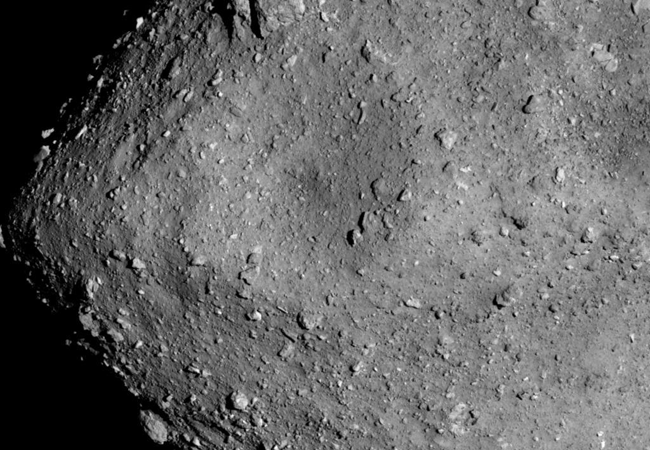
The geoscientist Frank Brenker and his team will be among the first scientists to examine material from the asteroid Ryugu. It is currently being orbited by the Japanese aerospace agency JAXA’s space probe Hayabusa 2. The Japanese had originally intended to carry out the preliminary investigations themselves.
Ryugu (English: dragon palace) is a class C asteroid, among the most ancient objects in our solar system. Scientists believe it has not changed significantly over the past 4.56 billion years and can therefore offer a glimpse into our solar system’s childhood. Scientists around the world are therefore awaiting these unique samples with anticipation. When they are brought to earth by the space probe in 2020, Frank Brenker from the Institute of Geoscience at the Goethe University will be among the first non-Japanese scientists to examine the unique material first-hand. He and two of his Belgian colleagues have been appointed to the mission’s preliminary investigative team.
Investigating the solar system’s formation with super microscopes
The Frankfurt geoscientist and his team have developed a new measuring procedure with super microscopes that allows a three-dimensional and non-contact inspection of material. These super microscopes work with synchrotron radiation (high energy X-rays) and make it possible to inspect the chemical composition and structure of matter without destroying it. “We are world-wide leaders in measuring the contents of rare earth elements, which are of great significance for geoscientific and cosmochemical interpretation,” Brenker explains. The precise, high resolution technology was developed over the past several years by his team at the DESY in Hamburg.








